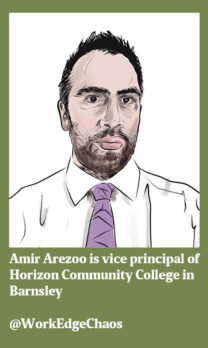ResearchED and 300,000 words later – some reflections
Gary Jones @DrGaryJones
Education is undoubtedly susceptible to dogma: batons are taken up, bandwagons are jumped on, causes are evangelised. When it comes to evidence-based practice, the concept that it should be used to inform pedagogy may seem inherently obvious. But what use is all the research if teachers can’t (or won’t) access it? Jones, who has written much on “all things evidence-based”, reviews the situation. “The ‘evidence-based movement’ is not going away anytime soon,” he says. But more needs to be done to ensure the evidence base contributes to improved outcomes for pupils, something that involves “an honest conversation about teacher research literacy and their subsequent abilities to make research-informed changes in their practice…” He also highlights the “major debate” amongst educational researchers about randomised controlled trials, effect sizes, meta-analysis. At first glance, one might assume that a crisis is forming; I would say it’s perfectly rational to constantly challenge one’s assumptions.
Is dual coding proof that learning styles exist?
Paul G Moss @EDmerger
The strategy of learning through dual coding and its apparent similarities with learning styles is the source of much debate. Paul G Moss attempts to differentiate between the two, revolving his point on studies that have consistently shown that “even if a student indicates a preferred learning style, and the assessment incorporates this style, it has little impact on the results of their performance in assessment”. He says that for him, “watching someone show me how to kick a football a certain way is better than having someone tell me how to do it”. Yet this doesn’t make him a “visual” learner. Instead, it’s the method of using multiple modalities of information that combine to make that information more accessible, or as Moss puts it, “the takeaway for teachers is that if you are delivering content, the more variety you use in the delivery the greater the chance of effective encoding”. This concise post is fertile with points of evidence, debate and reasoning.
To nap or not to nap, is that a question?
Karla A. Lassonde @AceThatTest
Those of us in secondary education understand the perils of students’ lack of sleep, whatever the reason may be. The prevailing view is that naps are bad – but as in all of these things, as Karla Lassonde points out, it’s not as black and white as that. “Spending too much time or not enough in deep sleep stages can cause you to feel terrible after you wake,” she says. The implications of napping on learning, however, suggest that naps provide “benefits in declarative memory” – in other words, a brief bit of shut-eye after a day at school helps with the consolidation of learning and helps to connect new learning to what is stored in our long-term memory. Should we offer students bunks to settle down in at the end of a long school day? Perhaps not, but it is striking that the thing that students tend to increasingly avoid is the one they need the most to be successful.
Supporting working memory in the English classroom
Zoe Enser @greeborunner
Zoe Enser is refreshingly open about her thoughts in implementing pedagogical practice as she continues to guest post on Mark Enser’s blog. Her focus this time is on working memory, which follows up on the research that shows working memory is different for the most disadvantaged. I enjoyed the illustrative and reflective nature of the piece, particularly the part about quality of explanation, and even more particularly: “I am also careful to shut up when the explanation needs to end.” That is a point that I will take as advice in the future!













Your thoughts